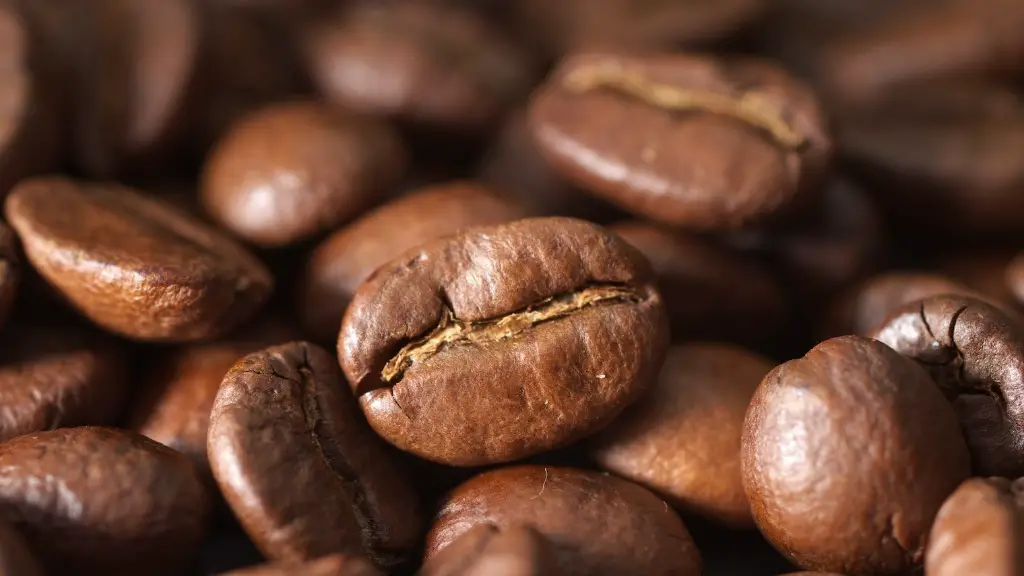Slowing down the coffee drinking habit
Having a cup of coffee every morning may become a habit for some, and to quit drinking coffee suddenly can be a difficult transition. It’s important to understand the consequences of such an act, and how to deal with them accordingly. To quit drinking coffee can lead to some physical and mental changes, some certainly more complicated than others.
Quitting coffee can be beneficial for mental clarity, physical alertness and energy levels. According to Alena, a certified nutritionist in California, “Withdrawal symptoms will become more intense without coffee and can include fatigue, headaches and nausea. Increasing water and exercise can help mitigate the symptoms, and drinking herbal tea instead can also be helpful.”
Caffeine is a drug, something that acts as a stimulant to the central nervous system and when quitting drinking coffee, the body will need to replenish the neurotransmitters that assists in producing focus, and alertness. When quitting coffee, the body is changing its own internal chemicals, trying to regain a normal level of alertness and mental focus.
The main physical change people experience when they quit drinking coffee is the presence of headaches. When drinking coffee, the body develops a tolerance to the surrounding substances in the compound, leading to feeling of physical dependency on it. When a person ceases consuming coffee, the body is no longer receiving the compounds needed for its regular daily functions, leading to feelings of fatigue.
It can be beneficial for your health to quit drinking coffee. Coffee can trigger changes in the production of insulin and how glucose is used by the cells. If quit, the body could begin to better regulate blood glucose levels. Furthermore, consumption of coffee can contribute to feelings of general dehydration and fatigue throughout the day. It can also lead to strong dependency when quitting as withdrawals can become more intense.
Enhancing positive habits to replace caffeine intake
When separated from a cup of coffee, it can be hard to know where to turn. Positive daily habits can replace caffeine intake and steering away from coffee can even grant physical and mental health benefits. Exercise, with its fatigue reducing effects, can act as an efficient way to replace caffeine intake.
Furthering dietary adjustments can also be beneficial. A plant-based diet can be much healthier than before and can certainly help regulate daily intake of caffeine. A fibre-rich diet can also help provide energy throughout the day and actually help signal to stop eating, boosting feelings of fullness rather than continued hunger by suppressing hunger hormones. When quitting drinking coffee, one’s sleeping cycle can also become more regulated.
Quitting coffee can also lead to improved respiratory function. Caffeine can make breathing more difficult when constricting the breathing passages, however, by eliminating caffeine, the body can begin to normalise functioning.
Furthermore, consuming more greens like broccoli, cauliflower and kale can also help make up for the vitamins and minerals typically lost while drinking coffee. Replacing coffee can be a great way to increase vitamin and mineral uptake from the body.
Consuming fresh fruit and vegetable juices can also lead to feelings of improved intakes in vitamins, minerals and antioxidants. Replacing caffeine with natural vitamins can also make up for its deficiencies and can be a great way to ensure that the body is getting the nutrients it needs for optimal functioning.
Kickstarting your detox
Kickstarting your caffeine-free lifestyle begins with pursuing a balanced diet. Eating anti-inflammatory foods like avocado and adding fresh balanced spices to salads and meals can help not just your health but positively contribute to the success of quiting drinking coffee minimizing the process of addiction.
Ginger, turmeric, garlic and apple cider vinegar are some of the greatest natural spices and components in stimulating detoxification in the body. They can help take the edge off of frequent headaches and nausea and can actually help start the process of renewing the body. Furthermore, they can assist in getting rid of toxins and bring the body back to its normal daily functions, assisting it to regenerate any lost nutrients when quitting coffee.
It is important to take time off in between meals. Taking a few hours in between meals can give the body enough time to digest properly and can certainly help reduce hunger cravings.
Absorbing the effects of caffeine withdrawal
The body is a neat mechanism that reads the signals from it and acts accordingly. When the individual feels the caffeine withdrawals and longs for the coffee, it is in these moments that the body is reshaping itself and absorbing the sudden change.
Caffeine has long been used as a performance and cognitive enhancer and its effects can be seen with just one cup of coffee. When quitting drinking coffee, the body may be in shock, however, by addressing the needs and deficiencies of the body and reintroducing other supplements, such as ferrous oxide, the body can begin to reestablish its daily nutritional needs.
The more the body feels attached to certain habits, the body creates more of those same compounds in order to feel those pleasurable effects. By break those routine, the body will respond positively as it sends signals to refuel and start providing the body with the necessary ingredients.
Finally, to quit drinking coffee can become a great change in one’s life and can bring positive benefits with it. By understanding the consequences that may arise when drinking coffee, one can make the changes necessary to fuel their bodies the right way.
Restricting from the ‘wakeup cup’
Many people in the world consider coffee a way to start the day on a good note and make it go by faster. When quitting drinking coffee, it can be hard to find a substitute for that morning habit.
Engaging in a morning exercise routine can be one way to keep up with that habit as it not only wakes you up but also boosts the energy to start the day. A short morning walk or skipping rope can put your energy in the right place, in a more positive and productive manner.
Quitting coffee can also lead to better hydration. Drinking certain herbal teas can provide similar amounts of caffeine and can also act as diuretics, meaning that water is better absorbed by the body and the toxins in the urine are kept at a minimum.
Nevertheless, replacing coffee with juices, smoothies and water can provide necessary hydration and vitamins to the body that coffee can not. This can also bring renewed energy levels and help regulate vitamins, minerals and essential ingredients to the body.
Understanding cravings and addiction to coffee
Cravings and addiction to coffee is not uncommon, and when deciding to quit coffee completely or just to lower coffee intake, one needs to understand it better in order to succeeded in the mission.
Coffee triggers the release of dopamine and serotonin, two neurotransmitters that broadly associated with happiness, reward and pleasure. This is why people find it harder to quit drinking coffee and why, sometimes, the process can prove to be difficult and emotionally charged.
Quitting coffee can take some time, as it is a process that needs to be slowly implemented as not to shock the body with sudden changes, as that can lead to rejection, headaches and fatigue. Some people have been known to have some negative reactions, with some even having difficulty sleeping or even anxiety. It is vital to know the patterns in which coffee is been taken and to slowly reduce it until the morning cup is abolished.
Furthermore, changing the body’s chemistry and replenishing the neurotransmitters lost when drinking coffee can also prove to be difficult and it is in this moment that supplementary activities can help.
Adopting the attitude of quitting coffee
Quitting coffee goes beyond simply removing coffee from the diet. The mind needs to be rewired and one must adopt an attitude that prioritizes health and wellbeing, especially during times that the body is telling different.
Vanessa, a Life Coach who specializes in mental health and well being, refers to this as “self-regulation”, “the practice of controlling one’s behaviour, thoughts, and emotions in order to achieve a positive sense of wellbeing. Self-regulation starts with becoming more mindful of habits like coffee drinking and understanding the consequences.”
When looking to quit drinking coffee, it is important to understand that the body will always remain attached to the sensation of coffee, however, a bit of control will help retrain the mind and even pamper and restore the body, ultimately leading to a healthier lifestyle and away from coffee.
Stepping away from morning coffee
While coffee can be seen as a necessity, sometimes it is actually a sign of addiction, which can be very hard to break away from. To quit drinking coffee the process should be taken slowly, eventually leading to the morning coffee being abolished.
Enhancing healthy habits like increasing water intake and eating breakfast can help reduce the need for coffee in the morning and can even help increase vigor and vitality during the day. Increasing magnesium intake by eating magnesium-rich food can help soothe the process of losing coffee and can actually help control cravings.
Furthermore, getting enough exercise can actually help control hunger, cravings and can assist in regulating serotonin and mood regulating hormones instead of relying on coffee.
Taking advantage of food to replace caffeine
Eating a balanced diet and changing food to replace coffee habits can be beneficial during this transition. Eating healthy fats like walnuts, almonds and chia seeds can help induce the appearance of more natural energy in the body and help balance out blood sugar levels.
Furthermore, introducing more complex carbohydrates like quinoa, oats and legumes can also be helpful in regulating hunger and helping the body produce more energy, as carbs are the main source of fuel for the body.
Adding healthy proteins to the diet is also a great way to keep the body fuller for longer and to keep it functioning properly. Healthy proteins include fatty fish, eggs and quinoa, providing the body with necessary omega 3 and 6 fatty acids, as well as protein to fuel the body’s cells.
Slowly shifting from coffee intake
When quitting drinking coffee, taking things slow can be the best way. This can also help reduce headaches and cravings with time. Therefore, it is best to wean down to smaller amounts of caffeine each day until the goal is met.
Furthermore, replacing coffee with teas can also be beneficial as teas still contain some caffeine within them. This can help the body better adjust to the change without drastically cutting off caffeine from the diet, leading to stress and headaches.
Finally, taking things slow and understanding what the body can and cannot do can assist greatly during the process of quitting coffee. By taking into account the need for supplements and vitamins, one can understand the body better and respect its needs when quitting.


